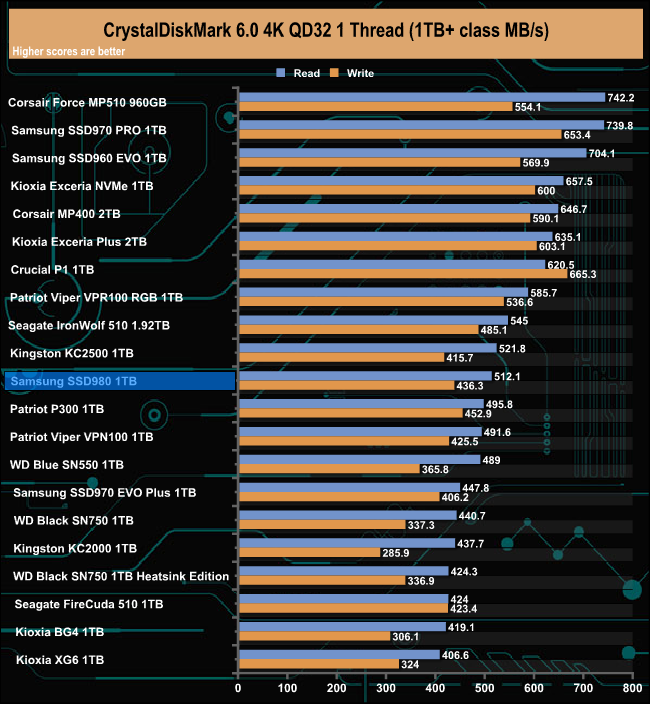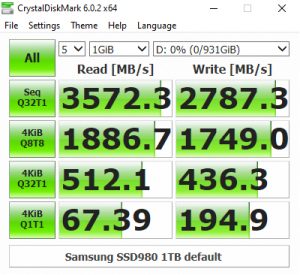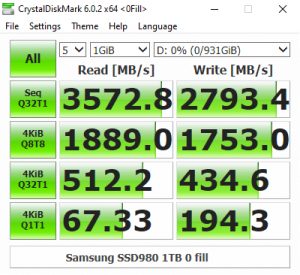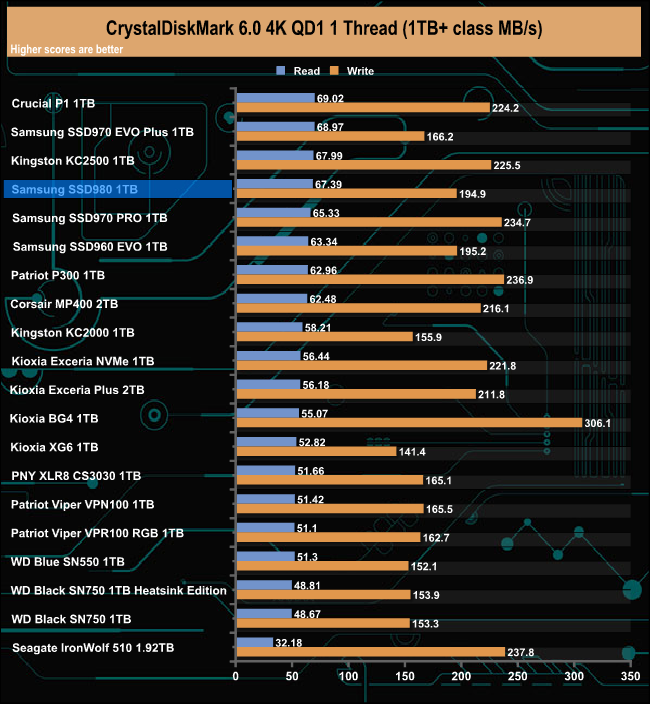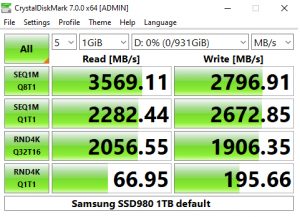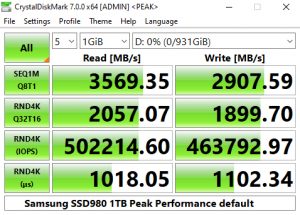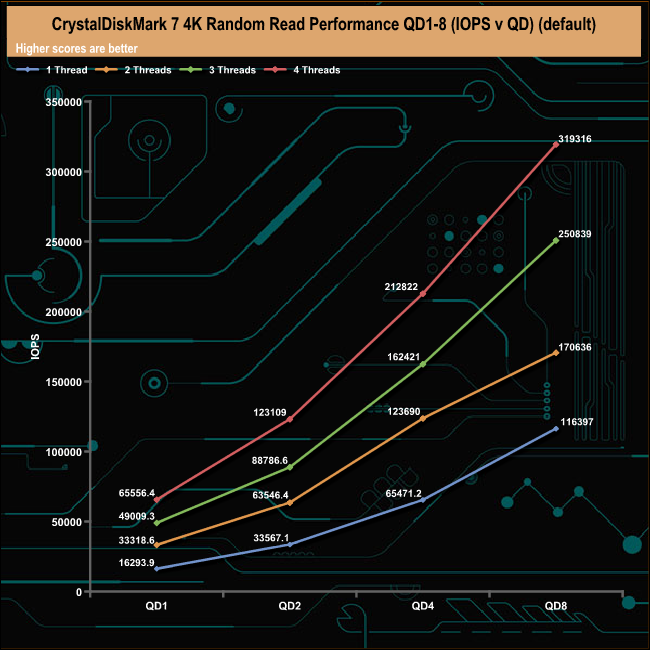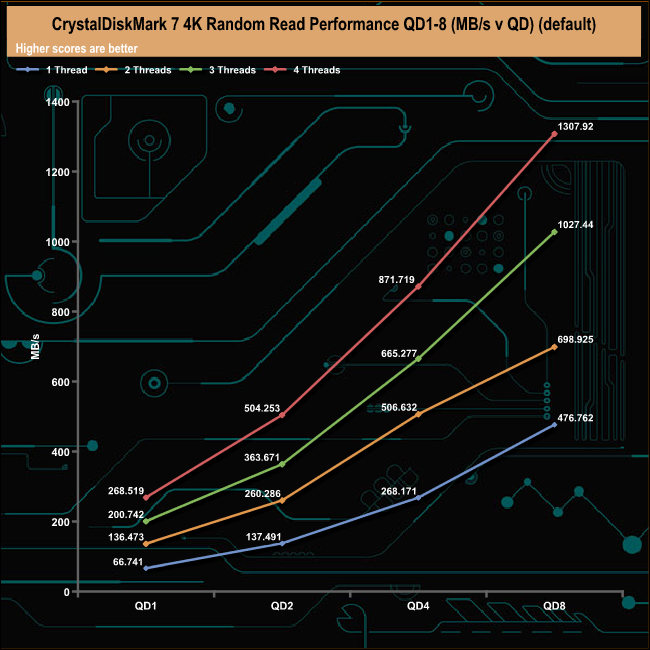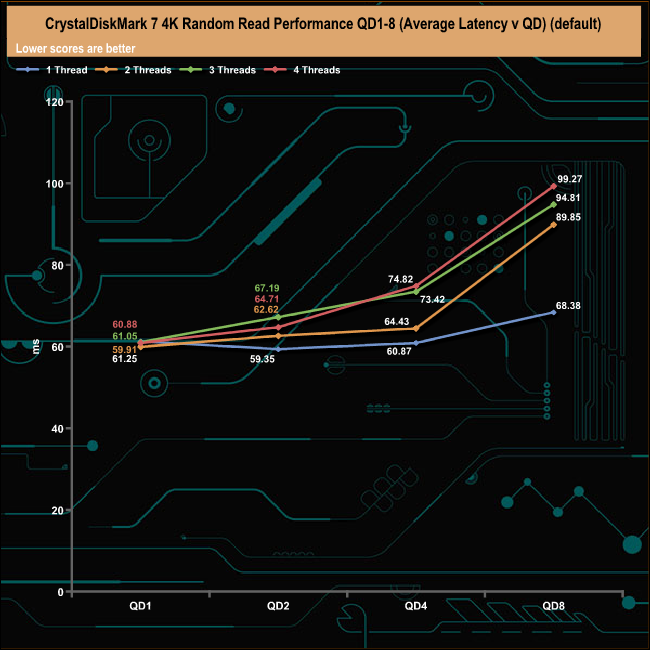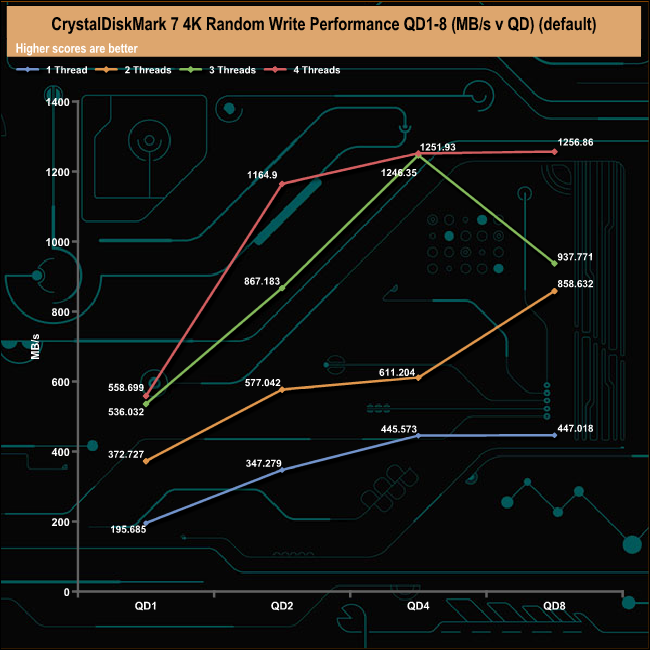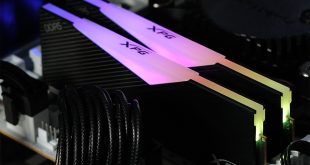CrystalDiskMark is a useful benchmark to measure theoretical performance levels of hard drives and SSD’s. We are using v6.0. and 7.
Testing the drive with CrystalDiskMark's 4K QD32 test produces a result that sees the drive sitting midway in our results chart. Looking at the pair of result screens it appears that the Samsung controller doesn't appear to have any preference for the type of data it's being asked to handle.
In relation to the other drives around it, the SSD 980 shows better performance in CrystalDiskMark's 4K QD1 test as it sits in the top five of drives tested to date.
CrystalDiskMark 7
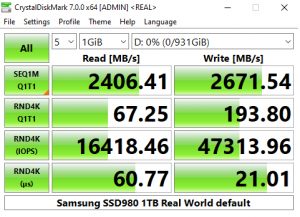

Samsung rate the 1TB SSD 980 as up to 3,500MB/s and 3,000 for Sequential read and writes respectively. We could confirm those figures with CrystalDiskMark 7 with a read performance figure of 3,569MB/s with writes a little shy of the maximum figure at 2,907MB/s.
CrystalDiskMark 7 includes a couple of profiles that can be used for testing – Peak Performance and Real World. The result screens for these two profiles not only display MB/s results but also IOPS and latency.
The official 4K random read/write figures for the drive are up to 17,000 IOPS and 54,000 IOPS respectively at QD1 and up to 500,000 IOPS for reads and 480,000 IOPS for writes at QD32. Looking at the Peak Performance results we can confirm the official 4K random read figure with a test result of 502,214 IOPS with writes lower than the official maximum at 463,792 IOPS.
We also used CrystalDiskMark 7 to test the random performance of the drive at lower queue depths (QD1 – QD8 where most of the everyday workloads occur) using 1 to 4 threads.
Using a single thread the drive produced a read figure of 16,293 IOPS (66.74MB/s) slightly below the official figure of 17,000 IOPS.
Samsung rate the SSD 980 at up 54,000 IOPS at QD1 with a single thread for random writes. When tested with CrystalDiskMark 7 the best we saw from the drive at QD1 was 47,774 IOPS (195MB/s). In the three threaded test run, we saw a drop off in performance from QDs 4 and 8.
 KitGuru KitGuru.net – Tech News | Hardware News | Hardware Reviews | IOS | Mobile | Gaming | Graphics Cards
KitGuru KitGuru.net – Tech News | Hardware News | Hardware Reviews | IOS | Mobile | Gaming | Graphics Cards


